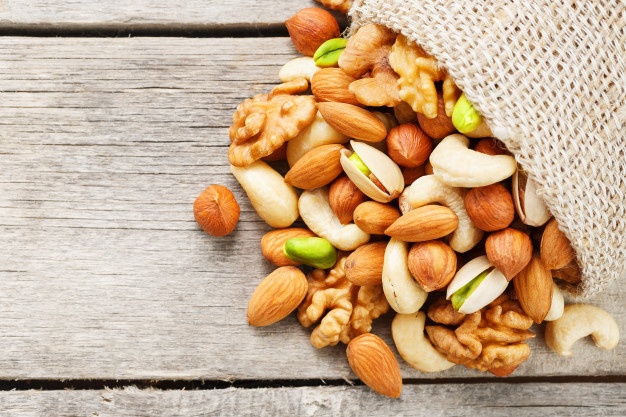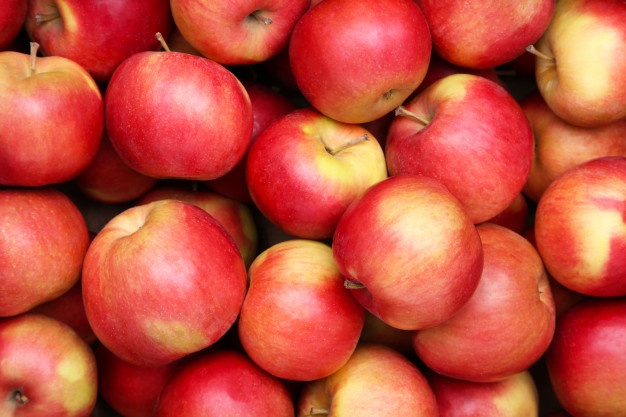Eating well isn’t just about what you consume—it’s also about when you consume it. Strategic meal timing can boost your metabolism, enhance energy levels, and support your overall health. In this in-depth guide, we explore the best times of the day to enjoy popular foods such as dark chocolate, lean meat, nuts, oranges, whole grain pasta, zucchini, tomatoes, potatoes, bananas, apples, cheese, sugar, and rice. By aligning your eating schedule with your body’s natural rhythms, you can optimize nutrient absorption and maximize the benefits of each food.
What To Eat Throughout The Day
Dark Chocolate: The Antioxidant Boost for Mid-Afternoon Energy

Dark chocolate is more than a delicious treat—it’s a powerful source of antioxidants and mood-enhancing compounds. Studies suggest that consuming a moderate amount of dark chocolate during the mid-afternoon can provide a natural energy boost and improve cognitive function. The flavonoids in dark chocolate are known to help improve blood flow and reduce inflammation, making it an excellent snack when you need a pick-me-up during that post-lunch slump. For those looking to manage weight and support heart health, the antioxidants in dark chocolate can also play a beneficial role. To learn more about the health benefits of dark chocolate, check out this detailed article on Healthline for expert insights.
Lean Meat: The Ultimate Protein Source for Muscle Repair and Energy
Protein is essential for muscle repair, tissue growth, and overall body maintenance. Consuming lean meat—such as chicken breast, turkey, or lean beef—at the right time in your day can maximize its benefits. Many nutrition experts recommend eating protein-rich foods either at breakfast to kickstart your metabolism or after your workout to aid in muscle recovery. Including lean meat in your midday meal can also help maintain steady energy levels throughout the day. Research from Harvard Health emphasizes the importance of timing your protein intake to support muscle synthesis and overall health. High-quality protein sources, consumed at optimal times, are a cornerstone of a balanced diet.
Nuts: Heart-Healthy Snacks for Anytime Energy

Nuts like almonds, walnuts, and cashews are nutritional powerhouses packed with healthy fats, protein, and fiber. They are ideal for a quick snack between meals, particularly during the late morning or early afternoon when your energy levels might dip. The healthy fats found in nuts contribute to heart health and help maintain satiety, reducing the likelihood of overeating later in the day. For more detailed nutritional advice on nuts, visit Mayo Clinic’s nutrition center.
Citrus Oranges: The Vitamin C Powerhouse for Morning Immunity
Starting your day with a burst of vitamin C can set a positive tone for your immune system. Oranges, rich in vitamin C, antioxidants, and fiber, are best enjoyed in the morning. The natural sugars and nutrients in oranges can provide an immediate energy boost, while the high vitamin C content supports immune function and skin health. Consuming citrus fruits during breakfast not only helps you stay hydrated but also supports a healthy digestive system. If you’re interested in the scientific research behind citrus benefits, WebMD offers comprehensive insights into how vitamin C contributes to overall wellness.
Whole Grain Pasta: Energy-Packed Carbohydrates for Sustained Performance
Carbohydrates are essential for fueling your body, especially if you lead an active lifestyle. Whole grain pasta, in particular, is a complex carbohydrate that releases energy slowly, making it perfect for sustained performance. Eating a serving of whole grain pasta during your lunch or early afternoon meal can help maintain energy levels without causing the spikes and crashes associated with refined carbs. Whether you’re preparing for a workout or need steady energy for a busy workday, incorporating whole grain pasta into your diet is a smart choice. For more on the benefits of whole grains, Harvard School of Public Health provides a wealth of information.
Fresh Zucchini: A Low-Calorie, Nutrient-Dense Option for Evening Meals

Zucchini is a versatile and low-calorie vegetable that is perfect for evening meals. Rich in vitamins, minerals, and antioxidants, zucchini can be used in a variety of recipes—from stir-fries to hearty vegetable medleys. Consuming zucchini in the evening helps ensure you receive a boost of nutrients without overloading your digestive system before bedtime. Its high water and fiber content also aid in digestion, making it an ideal food choice for a light dinner. Recipes featuring zucchini not only enhance meal variety but also support a balanced diet. For creative recipe ideas and nutritional information, explore BBC Good Food.
Vibrant Tomatoes: Lycopene-Rich Superfood for Heart Health
Tomatoes are a staple in many diets worldwide, thanks to their high content of lycopene—a powerful antioxidant that has been linked to improved heart health and reduced inflammation. Fresh or cooked, tomatoes can be enjoyed at various times during the day. However, consuming them with a bit of healthy fat, such as olive oil, can increase the absorption of lycopene. Whether added to salads at lunchtime or incorporated into dinner sauces, tomatoes help boost overall nutritional intake while supporting cardiovascular health. For more on the benefits of lycopene, see the in-depth analysis on Healthline.
Wholesome Potatoes: Energy-Rich Carbohydrates for a Powerful Breakfast

Potatoes are often misunderstood; when prepared healthily, they provide a high-quality source of complex carbohydrates, vitamins, and minerals. For many, the optimal time to enjoy potatoes is at breakfast or as a post-workout meal to replenish energy stores. Baked or boiled potatoes offer a satisfying, nutrient-rich option that supports sustained energy release and muscle recovery. When combined with lean protein and vegetables, potatoes contribute to a balanced meal that fuels the body effectively. To further explore the benefits of potatoes, visit NutritionFacts.org
Bananas: The Perfect Pre-Workout Fuel for Endurance and Recovery
Bananas are renowned for their quick-release energy and high potassium content, which is essential for muscle function and recovery. Consuming a banana before a workout can help maintain energy levels and reduce muscle cramps, making it a favorite among athletes and fitness enthusiasts. In addition, bananas are easily digestible, making them a convenient snack at any time of the day. Their natural sugars and fiber provide a balanced boost without overwhelming the digestive system. For additional details on the benefits of bananas, refer to this insightful article on Healthline.
Crisp Apples: A Fiber-Rich Treat for Digestive Health and Satiety

Apples have long been celebrated as a symbol of health and nutrition. Rich in dietary fiber, vitamins, and antioxidants, apples are an excellent snack for improving digestive health and maintaining satiety between meals. Eating an apple in the mid-morning or as an afternoon snack can help stabilize blood sugar levels and curb unhealthy cravings. The natural sweetness and satisfying crunch of an apple make it a popular choice for those looking to maintain a healthy weight. For further reading on the nutritional benefits of apples, consider checking out WebMD’s nutrition section.
Delicious Cheese: A Protein and Calcium Boost for Bone Health
Cheese is not only delicious—it’s also a valuable source of protein, calcium, and essential vitamins. When enjoyed in moderation, cheese can contribute significantly to bone health and muscle maintenance. Depending on your dietary goals, the best time to consume cheese might be during a balanced lunch or as part of an evening snack. Pairing cheese with whole grain crackers or fresh vegetables can enhance the absorption of its nutrients while providing a satisfying and filling meal component. For evidence-based insights on dairy consumption, Harvard Health Publishing offers an in-depth look into the role of dairy in a healthy diet.
Controlled Sugar: Managing Sweetness for Stable Blood Glucose Levels

Sugar, when consumed in moderation, can provide quick energy, but it also comes with challenges related to blood glucose management. The key is to balance natural sugars found in fruits with a low intake of refined sugars. For many, the best approach is to consume sugary treats as part of a well-rounded meal rather than on an empty stomach, thereby avoiding rapid spikes in blood sugar levels. This strategy not only supports sustained energy throughout the day but also aligns with best practices for weight management and metabolic health. For more information on managing sugar intake, visit Mayo Clinic’s guide on sugar.
Nutrient-Rich Rice: The Ideal Base for a Balanced, Energy-Boosting Meal
Rice remains a global dietary staple, prized for its versatility and energy-providing carbohydrates. Whether you opt for brown rice, jasmine rice, or even wild rice, timing your rice consumption to coincide with other nutrient-dense foods can significantly enhance your meal’s overall impact. Consuming rice as part of your lunch or dinner ensures a steady release of energy that supports both cognitive function and physical performance. Pairing rice with lean proteins and vegetables creates a well-rounded meal that caters to a healthy metabolism. To explore more about the nutritional benefits of different rice varieties, you can read up on the benefits of rice at Harvard Health.
Conclusion
Optimizing the time you eat your favorite foods can transform your overall health and wellness. By strategically planning your meals—whether it’s enjoying dark chocolate in the afternoon for a cognitive boost or consuming lean meat after a workout for muscle repair—you are setting yourself up for improved energy levels, better digestion, and enhanced metabolic function. This guide has covered a wide range of foods from antioxidant-rich dark chocolate to energy-packed rice, providing evidence-based tips and expert insights that align with trending dietary advice.
Adopting a meal timing strategy not only supports weight loss and a balanced diet but also helps you make informed choices about nutrient timing. With credible external references from trusted sources like Healthline, Harvard Health, and Mayo Clinic, you have a comprehensive resource to guide your journey toward optimal health. Incorporate these tips into your daily routine, and you may find that the simple act of timing your meals can make a profound difference in your overall well-being.
For those looking to enhance their healthy lifestyle with additional tips on diet, nutrition, and fitness, consider exploring more articles and resources from industry-leading websites. A well-balanced approach to food and meal timing, supported by reliable research and expert advice, can empower you to achieve your health goals and maintain high energy levels throughout your day.
Embrace the power of strategic eating—because when you choose the right time to eat, every bite counts.









